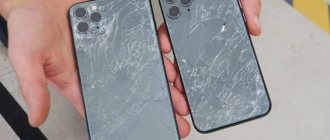Home / Complaints, courts, consumer rights / Consumer rights
Back
Published: September 10, 2018
Reading time: 7 min
0
766
Technically complex goods are a statutory legal term designating a specific group of goods. These mainly include complex equipment, electronic and electronic computer technology and transport.
- Regulatory framework
- List of technically complex products
- Consumer rights
- Technically complex products that cannot be returned
An exhaustive list is given and recorded in the Decree of the Government of the Russian Federation.
List of technically complex products
Technically complex goods are understood as non-food products created for long-term use by consumers.
Their key difference from conventional devices is the presence of complex microcircuits and other spare parts necessary for full operation, as well as the ability to simultaneously perform more than two functions at a high technological level specified by the manufacturer. The list of technically complex goods in 2021, as before, includes (Resolution of the Government of the Russian Federation dated November 10, 2011 No. 924):
- Aircraft, helicopters and light aircraft with internal combustion engines.
- Passenger cars, scooters, motorcycles and other vehicles with internal combustion engines.
- Agricultural machinery with an internal combustion engine.
- Snowmobiles and other equipment for driving on snow with internal combustion engines.
- Pleasure, tourist, sports vessels, yachts, boats, boats and other watercraft with internal combustion engines.
- Navigation and wireless communication aids for home use, having 2 or more functions and a touch screen.
- Desktop and laptop computers.
- MFPs (laser and inkjet).
- Monitors, projectors, game consoles, satellite TV sets and TVs equipped with digital control units.
- Optical equipment for creating photos and videos with digital control units.
- Digital video and photo cameras, lenses for them.
- Washing machines, dishwashers, refrigerators and some other household appliances.
- Mechanical, electro-mechanical and electronic wristwatches that perform two or more functions.
- Power tools.
When and within what time frame can I return a technically complex product?
Features of return and replacement of the category of goods in question are regulated by Part 1 of Art. 18 of the Law of the Russian Federation “On the Protection of Consumer Rights” dated 02/07/1992 No. 2300-1 (hereinafter referred to as the Law of the Russian Federation). Provisions of Art. 25 of the GDPR provide the consumer with the right to exchange goods of normal quality, which for any reason did not suit him. However, this does not apply to technically complex products.
A key feature of products belonging to this category is the possibility of returning and exchanging them after purchase only if a manufacturing defect or other defects are detected, if this significantly spoils the appearance or makes operation impossible.
It will not be possible to return such equipment simply because you don’t like it or you no longer need it. It really makes no sense to refer to defects when they are absent: the seller will conduct an examination and, if the conclusion states that the product performs its functions without problems, will refuse to return the money. The same is said in Part 3 of Art. 503 of the Civil Code of the Russian Federation: the buyer has the right to ask for a refund or demand the replacement of a technically complex product with a new one, of good quality and at a similar cost, only if a defect is detected in it.
As a general rule, a claim for the return or replacement of defective goods can be made within the warranty period (if it is not established, within 2 years). However, for products from the list of technically complex goods, such requirements are presented within 15 days from the date of purchase.
Outside this period, you can contact the seller:
- if the defect of the product is significant (read about what is considered such in our article);
- if the consumer has already applied for the elimination of product defects, and the deadlines for their elimination were violated;
- if the product has not been in use for a total of more than 30 days during the warranty year due to being under repair.
Return procedure
Defective goods can be returned or exchanged while the warranty period established by the manufacturer is valid. This also applies to those products that cannot be exchanged. If the product warranty period is not established, returns can be made within two years after purchase.
If after purchase any defect in the product is discovered, the buyer must contact the store with a complaint in writing. After its consideration and verification, one of the following decisions should be made:
- Exchange of technically complex goods with a defect for a similar product of proper quality.
- Reviewing the price of a product with a significant defect and reducing it, as well as paying the buyer the difference in cost.
- The seller may terminate the transaction for the purchase of low-quality goods and return the full amount to the consumer.
- Exchange of goods for another quality product with recalculation of cost.
- Elimination of product malfunctions by the seller at his expense. Repairs must be carried out within the period established by law, otherwise penalties and fines may be imposed on the seller.
It is up to the consumer to decide which option is preferable to choose. If the buyer wants to exchange a certain technically complex product of inadequate quality, but the required product is not available, the store can provide it after receipt. If the seller violates the deadlines for return, exchange or elimination of defects, he may be held liable. These issues must be taken very seriously. After all, these are your rights and your money. Be careful.
If the deadline has expired, you will have to prove significant deficiencies
Materiality criteria are a basis that does not have a precise definition. The inability to use a technically complex product, as well as the delay in eliminating defects, can be proven with documents. Difficulties arise when it comes to materiality. The law does not contain a list of signs. The court determines them when it analyzes the circumstances of a particular case.
This is also important to know:
What is the quality of a product and how to determine it
For example, a consumer purchased a camera. He requested a replacement product when more than 15 days had passed. As evidence, the applicant presented an expert opinion. The court found that the plaintiff sent a claim, but did not transfer the goods to the seller along with it. The defendant could not verify the validity of the claims, determine the quality of the goods and present his evidence. The court found that the manufacturing defect:
- can be eliminated without significant financial costs,
- does not require significant labor and time.
The court rejected the claim (appeal ruling of the Samara Regional Court dated 02/08/2018 in case No. 33-1448/2018).
In another case, a consumer purchased a car. He considered that a two-layer paint coating on top of a four-layer factory coating was a significant production flaw. The case reached the Supreme Court, which returned the dispute for reconsideration. The lower authorities did not find out:
- what specific mandatory requirements for the characteristics and quality of the car are violated by additional layers of coating,
- whether this is a significant drawback (determination of the Supreme Court of the Russian Federation dated August 29, 2017 No. 77-KG17-20).
The Consumer Protection Act does not apply to companies. If the product is used by a legal entity, the plaintiff does not have the right to refer to legislation on the protection of consumer rights (appeal ruling of the Samara Regional Court dated July 1, 2014 No. 33-6260/2014). It is necessary to refer to the provisions of the contract and demand that defects be eliminated during the warranty period.
Get ready to defend your interests in court
If the seller does not provide another product in exchange for the defective product, he will refer to various circumstances:
- the operational nature of the shortcomings of a technically complex product;
- substitution of parts by the consumer;
- incorrect conclusions of the examination carried out by the buyer;
- expiration of the period for filing claims, lack of authority, etc.
To avoid dealing with an unscrupulous dealer again, it is advisable to demand damages rather than replacement. To make a decision, courts in such disputes rely on expert opinions.
For example, in one case, the court recovered damages and penalties from a dealer who provided a consumer with a car with defects. The court found that the defendant company had the authority to:
- sell vehicles,
- carry out warranty repairs,
- meet consumer requirements.
This is also important to know:
How to return money sent by mistake to your card
The amount of losses and the nature of the damage were established by the examination. Since the disputed object is a technically complex product, the law does not limit the period for a claim for compensation of losses to 15 days (appeal ruling of the Orenburg Regional Court dated July 19, 2017 in case No. 33-5091/2017).
Items that cannot be returned
In accordance with the text of Resolution No. 55, the right to exchange or return within 14 days provided for in Article 18 of the Law “On Protection of Consumer Rights” does not apply to the following types of high-quality non-food products:
- medicines, medical supplies and personal hygiene items, ophthalmic lenses and baby food;
- products used for personal hygiene, perfumes and cosmetics; woven and non-woven materials sold by the meter;
- underwear and hosiery;
- disposable tableware and plastic containers for food products;
- household and agricultural chemicals;
- household furniture;
- jewelry and precious stones;
- auto and motorcycle equipment, cultivators and watercraft;
- civilian weapons and ammunition;
- technically complex products;
- plants, animals and printed publications not related to periodicals.
Information Products from this list cannot be returned unless there are quality claims. If deficiencies are detected, the right to return is determined by the same Article 18 of the Law “OZPP”. According to the text of this article, defective goods can be returned to the store, even if they are on the approved list.
Free legal consultation
We will answer your question in 5 minutes!
Free legal consultation We will answer your question in 5 minutes!
Call: 8 800 511-39-66
Ask a Question
Many questions arise when returning technically complex goods, the definition of which is given in paragraph 2 of Article 475 of the Civil Code of the Russian Federation. According to it, the definition of technically complex goods includes the following categories, defined in Decree of the Government of the Russian Federation No. 924:
- aircraft equipped with engines and vehicles intended for movement on roads or snow;
- agricultural equipment and motorized vehicles;
- watercraft equipped with an engine;
- navigation and communication devices used in everyday life, and computing equipment;
- devices with a digital control unit;
- household appliances equipped with an electric motor or microprocessor.
- Returns and exchanges of these groups of goods require special conditions.
Items that cannot be returned or exchanged (list current for 2021)
List of goods that cannot be returned or exchanged under Art. 25 of the ZoPP, approved by Decree of the Government of the Russian Federation of January 19, 1998 No. 55. Technically complex goods that cannot be returned in 2021 are, as before, household goods that are subject to a warranty period: radio-electronic equipment, film and photographic equipment, electrical appliances, etc. .
In addition, it includes:
- rubber, textile, metal and other products intended for hygiene, treatment, disease prevention (including contact lenses and medications);
- personal hygiene products (combs, curlers, toothbrushes, hairpieces, wigs, etc.);
- Perfumes and cosmetics;
- fabrics, cables, wires, building materials;
- tableware, packaging and other products made of polymeric materials in contact with food;
- agrochemicals and pesticides;
- household chemicals (washing powders, gels, conditioners, etc.);
- furniture (sets, sets, tables, chairs, etc.);
- household watercraft and pleasure craft;
- motorcycle and bicycle goods, cars, trailers;
- jewelry;
- civilian and service weapons, ammunition;
- plants and animals;
- books, booklets and other non-periodical publications.
You can return such products only if they are defective. Moreover, this can be done not within 14 days (this is a common misconception), but during the warranty period (if it is not established, within 2 years).
Are smartphones and telephones technically complex products?
Not all modern communication devices can be called complex, so some people wonder whether a telephone is a technically complex product. To understand this issue, it is enough to pay attention to clause 6 of the list approved by Resolution No. 924. It follows from it that the phone will be technically complex if it:
- Wireless (mobile).
- Has a touch display.
- Performs 2 or more functions.
Thus, landline phones will not be technically complex products, nor will mobile phones without a touch screen. The answer to the question of whether a smartphone is a technically complex product in 2021 is clearly positive, because:
- A smartphone combines the functions of a computer and a telephone.
- All modern smartphones have a touch screen and perform many functions.
Store requirements when returning a purchase
Having purchased a complex product, the consumer at home discovered a manufacturing defect or malfunction. Before returning the purchase to the store, it is recommended to approach the store manager and consult whether this malfunction will be a reason for return. Some manufacturers of complex products warn sellers about specific cases when warranty service will not be provided.
This is also important to know:
A claim for consumer protection: how to draw it up and where to file it
Required conditions for returns:
- documents confirming the fact of purchase of the product from this particular trade organization;
- technically complex products are returned only in the original packaging and with all tags;
- the product malfunction was not caused by the consumer;
- availability of a complete package of documents for the product;
- the presence of a protective film on the product screen;
- if the buyer independently downloaded additional software for the product, they will definitely refuse to return it;
- If the buyer is not informed of the deadline for a possible return, then it increases to three months.
A product is considered defective if there are deviations from the relevant regulations, at least by one parameter.
Is a telephone a technically complex product?
An ordinary push-button telephone with a minimum of functions is not a technically complex product (but in practice, you have a chance to prove this to the store/sellers only through court, and even then the decision will not always be in your favor). So we still recommend equating the phone to a technically complex product. But a smartphone is definitely a technically complex product (item No. 6 of the list of technically complex products).
How to return a technically complex product (instructions for filing a claim)
The law does not oblige the consumer to file a claim before going to court (with the exception of claims against telecom operators and carriers). However, it is advisable to begin the return procedure by submitting a written complaint to the seller. After its presentation, most disputes are quickly resolved in favor of the consumer.
The claim states:
- Full name and address of the buyer;
- name and address of the seller;
- name and address of the organization where the purchase was made;
- date of purchase;
- Name of product;
- invoice or receipt number (optional);
- product defects;
- requirement (replace the equipment with a similar one, return the money, make repairs).
It would be useful to remind the seller of the period within which he must respond - 10 calendar days from the date of receipt of the complaint.
The letter of claim must be drawn up in two copies: one remains with the seller, and the second (with a note of acceptance) is returned to the consumer.
| claims for a refund for a technically complex product |
It is recommended that the claim be accompanied by a receipt or receipt issued at the time of purchase, but this is not mandatory. According to Part 5 of Art. 18 of the Law of the Russian Federation, the absence of such documentation cannot be a basis for refusing a return.
Lawsuit
If the seller does not satisfy the claim for a refund for a defective product from the list of technically complex ones, then you can safely go to court at the location of the plaintiff, defendant, or at the place where the purchase and sale agreement was concluded. In 2021, the claim is filed:
- to the magistrate's court if the amount of claims is less than 50,000 rubles;
- to the district court, if more than 50,000 rubles.
The price of the claim includes only material claims, so you can safely ask for compensation of 49,000 rubles for the defective laptop plus another 50,000 for moral damage and go with such a claim to the magistrate. State duty on claims up to 1,000,000 rubles is not paid.
In a claim you can state one of the claims under Art. 18 PDO:
- terminate the purchase and sale agreement and return the money paid;
- replace with a product of the same brand (same model and (or) article) or with the same product of a different brand (model, article) with recalculation of the price;
- reduce the purchase price proportionately (usually presented in the event of detection of defective parts or a similar situation);
- the requirement to immediately eliminate defects in the product free of charge.
This is also important to know:
How to write a claim correctly: writing sample
The requirements can be supplemented with compensation for associated expenses that the consumer had to incur in connection with the purchase of low-quality, technically complex goods. These may include transportation costs, the cost of an examination carried out at your own expense, and other losses. It is imperative to demand compensation for moral damages and legal costs, which include the costs of a representative – a consumer protection lawyer.









